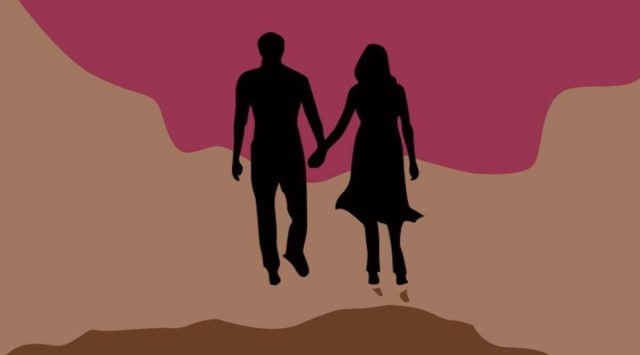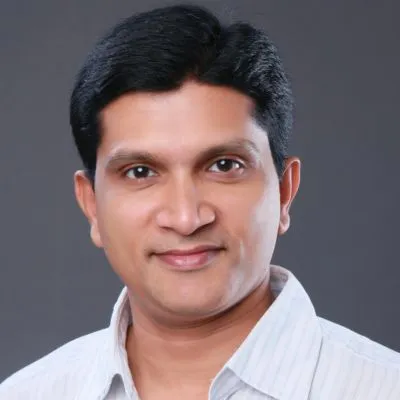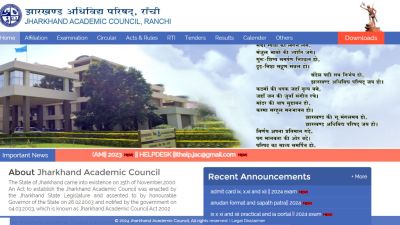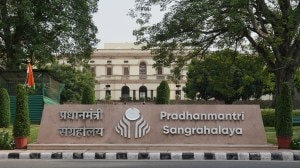- India
- International
UP, Uttarakhand ‘love jihad’ laws challenged, SC issues notice
Notice was issued after lawyers for petitioners made strong submissions, pointing out that people were being taken away from wedding venues and were being targeted by mobs.
 Initially, the bench was of the view that the petitioners should first approach the respective High Courts. (Representational)
Initially, the bench was of the view that the petitioners should first approach the respective High Courts. (Representational)Declining to grant any immediate stay on the anti-conversion laws of Uttar Pradesh and Uttarakhand, the Supreme Court issued notice Wednesday on two petitions challenging the laws which have provisions that prohibit religious conversion for the purpose of marriage.
The bench of Chief Justice of India S A Bobde, Justices A S Bopanna and V Ramasubramanian said it will hear the petitions — one by advocates Vishal Thakre and Abhay Singh Yadav and law researcher Pranvesh, and another by NGO Citizens for Justice and Peace (CJP) — against The Uttar Pradesh Prohibition Of Unlawful Conversion Of Religion Ordinance, 2020 and The Uttarakhand Freedom of Religion Act, 2018. The bench said it will have to hear the other side as well.
Notice was issued after lawyers for petitioners made strong submissions, pointing out that people were being taken away from wedding venues and were being targeted by mobs.
Initially, the bench was of the view that the petitioners should first approach the respective High Courts.
Solicitor General Tushar Mehta pointed out that the Allahabad High Court was already looking into it.

“It is already pending before the High Courts. Why don’t you go there? We are not saying you have a bad case. But you must approach the High Court first instead of coming to the SC directly,” the CJI told the petitioners.
Advocate Pradeep Yadav, appearing for Thakre and others, said the issue is affecting society and the Supreme Court can call records from courts where similar petitions are pending.
He said states like Madhya Pradesh and Haryana are planning to bring similar laws.
Senior advocate C U Singh, appearing for CJP, said Madhya Pradesh has convened a special session to pass the law.
Following the submissions, the bench agreed to issue notice.
Singh sought a stay on the operation of the laws, saying people are being lifted from marriage functions and mob attacks are taking place.
He said the two laws impose a reverse burden of proof and intimation to police for marriage. “Prima facie it’s an oppressive clause. It’s a non-bailable offence. This is there in both Acts. Daily there are reports of people being picked up by force,” he said, pressing for an interim stay.
But
the bench said: “You are asking for relief which we cannot entertain under Article 32. Whether the provision is arbitrary or oppressive needs to be seen. This is the problem when you come directly to the Supreme Court.”.
Singh said it is obnoxious to seek prior permission from a magistrate for marriage.
“We will hear,” the bench said, issuing notice returnable in four weeks.
Meanwhile, the Jamiat Ulama-i-Hind has also moved the top court, seeking permission to implead in the challenge to the laws, calling them a “grave assault on personal liberty”.
The application, filed through advocate Ejaz Maqbool, said the Uttar Pradesh Ordinance “attempts to regulate a personal decision of each human being by encroaching upon an individual’s choice to convert to a religion of his/her choice” and that “scrutiny by the state of such a personal decision is a grave assault on personal liberty of an individual and is violative of Article 21”.
The Ordinance, it said, “makes it a criminal offence to convert a person by offering him/her an ‘allurement’… allurement has been defined very broadly, to include even providing a gift to the person who is sought to be converted”.
“This means if a person belonging to one religion, say Islam, gifts a non-Muslim, a book concerning the teachings of Islam and the said non-Muslim person who received the book after reading it decides to convert to Islam, the said conversion could be said to have taken place by ‘allurement’ since it occurred after a gift was given to the convert,” it said.
If a preacher simply gives a discourse about positive tenets of his religion, which prompts anyone hearing it to convert, it too will amount to illegal “allurement” under the Ordinance, the plea said.
It said “though the Impugned Ordinance seeks to address the mischief of forcible conversion, however it provides that ‘reconversion’ to a person’s previous religion is not illegal, even if it is vitiated by fraud, force, allurement, misrepresentation and so on”.
The plea pointed out that interfaith couples in the country often bear the brunt of being ostracised from the community, so much so that families engage in the crime of “honour killing”.
The petition by Thakre and others contended that the law “curtails the Fundamental Rights of the citizen of India… disturbs the Basic Structure of the Constitution as laid down by the Law” and “is against the Public Policy and society at large”.
Their plea stated that the Act and Ordinance are “against the provisions of Special Marriage Act, 1954, and it will create fear in the society” as even those who are not part of any such activity can be falsely implicated.
The petitioners have urged the court to direct the states “not to give effect to impugned provisions/ordinance and withdraw the same or in the alternative modify the said Bill”.
The CJP petition stated that provisions of the impugned Act and Ordinance violate Article 21 of the Constitution as these empower the State to suppress an individual’s personal liberty.
“The Act and Ordinance”, it stated, “seemed to be premised on conspiracy theories and assume that all conversions are illegally forced upon individuals who may have attained the age of majority” and “place a burden on individuals to justify their personal decisions for State approval… this is a notion that is constitutionally repugnant and against a citizen’s right to freely exercise his/her freedom of choice” and impinges on the “right to life and liberty as well as right to freedom of religion”.
The two laws, it said, “are unconstitutional as both attempt to control the life of the residents of Uttarakhand and Uttar Pradesh and to not allow them to take charge of the significant decisions in their life”. They “allow for an unnecessary intrusion in the lives of people who have their autonomy compromised by the State,” the petition stated, adding that “when the individuals have to approach the District Magistrate to validate their conversion for purpose of marriage or otherwise, (it) violates this very right to privacy and disempowers” them.
Pointing out that Article 25 of the Constitution provides every individual the ‘freedom of conscience’ and free profession, practice and propagation of religion, the petition stated that “the Sanatan Hindu faith while not obviously proselytizing, have, also from the period of Early India to Medieval India, by co-option absorbed those from Adivasi, Indigenous and Subaltern Faiths that were not until this co-option ‘Hindu’. Hence, as a necessary corollary of the group right of a religion to propagate, an individual must have the right to convert to any religion other than his own”.
“Hence, the right to convert oneself to another religion is manifested in Article 25 of the Constitution,” but the “Ordinance and the Act impinge upon this right by imposing unreasonable and discriminatory restrictions on it by mandating that the administration be informed of such intention and a probe be launched in such a personal and intimate exercise of one’s right,” the CJP petition stated.
The new laws, it stated, view “all women including economically weak, marginalised, privileged women to be susceptible to illegal conversions”.
While usually, in criminal cases, the burden of proof is on the prosecution to prove guilt and the accused is considered innocent until proven guilty, the UP Ordinance states that the burden of proof on whether religious conversion was effected through misrepresentation, force, undue influence, coercion, allurement or by any fraudulent means or by marriage, lies on the person who has caused the conversion and, where such conversion has been facilitated by any person, on such other person.
Calling this “dangerous”, the petition stated that “the impugned laws make the government assume the role of protecting religious identities of the people and demonstrates intolerance towards the religious choices of the people” which “in itself is an attack on the secular fabric that holds Indian democracy together”.
It states that anti-conversion laws are “essentially crimes against the autonomy of women, dictating terms on potential suitors from within the woman’s community, caging her constitutional freedoms”.
On November 28, UP Governor Anandiben Patel gave her assent to the Ordinance which prohibits conversion from one religion to another by “misrepresentation, force, fraud, undue influence, coercion, allurement or marriage”. Under the law, a marriage will be declared null and void if the “sole intention” is to change a girl’s religion.
Apr 19: Latest News
- 01
- 02
- 03
- 04
- 05







































